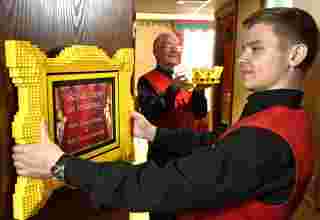Adults in the UK believe there is a 50/50 chance of surviving a cardiac arrest – but in reality, nine in 10 of those which happen away from a hospital result in death.
A survey of 2,000 adults found 28 per cent believe a cardiac arrest is the same as a heart attack.
However, a cardiac arrest is the ultimate medical emergency, when the heart stops beating, and the individual is clinically dead.
Yet less than a quarter of those polled believe a cardiac arrest is more urgent than a heart attack.
During a heart attack, the heart normally continues to beat but blood supply to the organ is disrupted.
But only 30 per cent of adults surveyed realised that a person is clinically dead at the point of arrest.
Almost half of those polled (49 per cent) also believe cardiac arrest survivors have the same rehabilitation services and psychological support as those who have suffered a stroke, heart attack or been diagnosed with cancer.
But there is currently no formal care plan for cardiac arrest survivors consistently applied across the UK.
According to experts, every minute without CPR and defibrillation reduces a person’s chance of survival by up to 10 per cent.
Symptoms of sudden cardiac arrest are immediate and severe and include a sudden collapse, which include unconsciousness, no pulse and no breathing.
Preparing to help
James Cant, CEO at Resuscitation Council UK, which commissioned the research, said: “Currently, we are failing people who survive a cardiac arrest.
“There is no personalised care plan for rehabilitation for these patients, they are often sent home with severe neurological, physical, and emotional difficulties, missing out on the vital services they need to help them to recover.
“Everyone affected by cardiac arrest has a right to recovery and rehabilitation, which is a key element of improving quality of life post event. ”
Worryingly, while 23




















